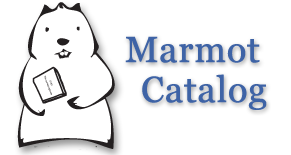OverDrive’s Upcoming APIs to Allow Ebook Checkouts from OPAC
 OverDrive’s most recent agreement touts plans for “deep API integration” with Innovative Interfaces Inc. (III) products, including Sierra and the Encore Discovery Services Platform, including new API updates that “will include the ability to check out and place a hold on ebooks from a library’s online catalog,” according to an announcement posted to the company’s blog on Thursday.
OverDrive’s most recent agreement touts plans for “deep API integration” with Innovative Interfaces Inc. (III) products, including Sierra and the Encore Discovery Services Platform, including new API updates that “will include the ability to check out and place a hold on ebooks from a library’s online catalog,” according to an announcement posted to the company’s blog on Thursday.
The integration will also enable a “seamless experience,” within OverDrive’s Content Reserve collection portal, offering the option of viewing a library’s physical and digital holdings side-by-side, “so that collection development decisions can be based on physical holdings, circulation, and other criteria,” the blog explains.
The companies expect the new content API—along with a related patron authentication API that enables secure access during ebook checkouts—to be ready for demonstration on the III platforms at the 2013 American Library Association (ALA) annual conference, beginning June 27 in Chicago. Shortly afterward, the APIs will be available to partner libraries and approved vendors for pilot testing.
First announced in June 2012, OverDrive’s new content API will begin to resolve a longstanding complaint from librarians who would prefer for their patrons to be able to access digital content from OverDrive and other vendors without navigating away from the library’s catalog. This functionality is one of the central tenets of the ReadersFirst initiative.
In conjunction with Polaris, the 3M Cloud Library became the first ebook platform to resolve this issue, going live with a fully integrated catalog at the Baltimore County Public Library last December. In January, SirsiDynix and several vendors, including Baker & Taylor, 3M, OverDrive, and Recorded Books, announced integration plans with the company’s eResource Central electronic resource management system. And earlier this week Baker & Taylor announced that they are working with Polaris to develop an ebook integration API for their Axis 360 platform. That API is also expected to debut at ALA Annual.
The Marmot experience
Last year, OverDrive began addressing the issue by releasing a suite of APIs that allowed vendors and libraries access to OverDrive’s metadata, availability records, and search functions. Programmers at Colorado’s Marmot Library Network squeezed more functionality out of these than perhaps any other library system. With a combination of these APIs and “under the hood” techniques such as screen scraping, Senior Developer Mark Noble led the design of a system that, beginning months ago, has enabled users of Marmot’s VuFind-based resource portal to place holds and check out OverDrive ebooks without appearing to leave the catalog. In a recent demo for LJ, catalog searches displayed available print, ebook, and audiobook content together.
 Searches are filtered for EPUB or Kindle compatibility when patrons select their brand of tablet or e-reader within the catalog. Marmot’s ebook checkout process likewise appears seamless to the end-user. One click, and the ebook begins downloading to the patron’s device—a straightforward checkout experience that libraries have been demanding for years.
Searches are filtered for EPUB or Kindle compatibility when patrons select their brand of tablet or e-reader within the catalog. Marmot’s ebook checkout process likewise appears seamless to the end-user. One click, and the ebook begins downloading to the patron’s device—a straightforward checkout experience that libraries have been demanding for years.
Presumably, the content API that OverDrive is preparing to debut this summer will facilitate a similar experience without requiring the extensive behind-the-scenes workarounds that Marmot has developed to simplify the search and checkout process for their patrons.
“What we’re doing here at Marmot is picking [the APIs] up, and running with them as fast as we can, first of all because we get the immediate benefit out of it, and second of all to prove to the industry that it can be done,” said Marmot Executive Director Jimmy Thomas during an interview weeks prior to this announcement. “Say to III, ‘this is what we can do ourselves, with an open source discovery layer. Look how easy this is, look how the benefits for the user are so powerful. This is what you should do…. Same message to SirsiDynix [and other ILS vendors].’”
Thomas’s comments regarding III now seem especially prescient, but both he and Noble described OverDrive as a communicative partner that had watched Marmot’s deployment of the earlier APIs closely.
Recent progress on ebook integration is the result of improved communication with vendors, and improved leverage as competing platforms emerge, Thomas said. The field learned a valuable lesson with electronic databases 20 years ago, he said, when a variety of competitors emerged with disparate platforms, resulting in complications that federated search technologies are still trying to solve.
“For librarians to picture that happening five times over with ebooks? Everybody just said ‘hang on. We cannot do this again…’. Fortunately, with ebooks, the number of players is small enough that librarians really can exercise some clout. They can say to OverDrive today, Baker & Taylor, EBSCO, and a few others tomorrow, ‘you have to do this or we’re not going to buy from you.’”
RELATED
ALREADY A SUBSCRIBER? LOG IN
We are currently offering this content for free. Sign up now to activate your personal profile, where you can save articles for future viewing









Add Comment :-
Comment Policy:
Comment should not be empty !!!